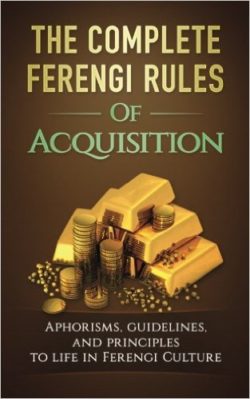 On my way home from Hardees this morning, it occurred to me that the Islamic account of the revelation of the Koran was a prime example of what Jacques Derrida called “the simulacrum.†“But it is a difference without reference, or rather a reference without a referent, without any first or last unit, a ghost that is the phantom of no flesh, wandering about without a past, without any death, birth, or presence. Mallarmé thus preserves the differential structure of mimicry or mimesis, but without its Platonic or metaphysical interpretation, which implies that somewhere the being of something that is is being imitated.â€Â (Jacques Derrida, Dissemination. Trans. Barbara Johnson (Chicago: University of Chicago Press, 1981, p. 206). Here’s what I have in mind.
On my way home from Hardees this morning, it occurred to me that the Islamic account of the revelation of the Koran was a prime example of what Jacques Derrida called “the simulacrum.†“But it is a difference without reference, or rather a reference without a referent, without any first or last unit, a ghost that is the phantom of no flesh, wandering about without a past, without any death, birth, or presence. Mallarmé thus preserves the differential structure of mimicry or mimesis, but without its Platonic or metaphysical interpretation, which implies that somewhere the being of something that is is being imitated.â€Â (Jacques Derrida, Dissemination. Trans. Barbara Johnson (Chicago: University of Chicago Press, 1981, p. 206). Here’s what I have in mind.
Islam believes that, when the Prophet Muhammad uttered the oracles subsequently written down as the Surahs of the Koran, he was repeating what the angel Gabriel was reading to him from the Mother of the Book, an eternal volume resident in heaven. But of course there is and was no such book resting on a pulpit in the sky. Not only did cosmonaut Yuri Gagarin not see it, but the whole notion is laughable if only because the Surahs, many of them, address specific historical circumstances, not eternal verities. It presupposes an ironclad historical determinism, predestinarianism, a script written in advance. This reduces even the supposed history of Islam to a charade: were the “crimes†of unbelief against which Allah blusters and fulminates in the Koran all scheduled by him in advance? Actually, the Koran says that they were. “Oh yeah? You refuse to knuckle under to Allah? Well, my friend, the joke’s on you, ‘cause Allah made you not believe in him so he could send your ass to Gehenna! So there!†Can such childishness really be a revelation from God? Well, I guess it starts sounding pretty plausible if the alternative is to get your head chopped off.
Also, the Koran speaks again and again of supposed events of the past vis-Ã -vis Muhammad, how things happened long ago to Abraham, Noah, Moses, and Jesus. Obviously, these things are referred to in the past, but if the Koran was eternal in the heavens, it has the tenses all wrong! It must have originated in a historical period when these (supposed) events were long past.
But, a la (not Allah) Derrida and Mallarmé, the infinite regress continues apace. The idea that the Surahs of the Koran are transcriptions (from memory!) of things witnesses heard a man named Muhammad say is equally fictitious. They are “copies†of something that had hitherto failed to exist in the first place! It has even become questionable whether there was ever a historical Muhammad upon whom these “revelations†might be fictively fathered.
All this falderal is perhaps meant to conceal a genuine original from which the Surahs were derived, namely Arabic Christian hymns. Gunter Lüling showed how much sense it makes of the Koranic text once one strips away an obscuring layer of redaction and rewriting by Muslim scribes and theologians. Even rules of grammar had been reverse-engineered to make the original Christian texts look Islamic. Lüling estimated that as much as a third of the extant Koran stems from Christian hymnody. Ibn Warraq, a scholarly historian of Islamic origins and Koranic criticism, notes that, as it stands, much of the text is simply incoherent. English translations of the Koran differ so widely because the translations are perforce largely conjectural.
 The title of the present essay is of course based on the opening salvo of Jesus’ preaching assummarized by Mark the evangelist: “The time is fulfilled; the kingdom of God is at hand. Repent and believe the good news†(Mark 1:15). This is not actually presented as the quoted words of Jesus, despite the usual punctuation in our Bible translations. Instead, it is indirect discourse: Mark’s words, not those of Jesus. Did Jesus say this? Did he even say the sayings the gospels do offer us in the form of direct quotations? I doubt it very much. In fact, the case is much like that of the Surahs of the Koran. It is just plain fanciful to imagine that people immediately took pains to memorize Jesus’ brief aphorisms, much less his longer, more detailed parables, what characters in them said back and forth, etc. Get real! Isn’t it obvious that the whole “oral tradition†approach is a far-fetched attempt to build a bridge to nowhere? To retroject later literary creations back onto a possibly fictional figure of the past? It’s a mirror image of the Star Trek writers cooking up the Ferengi Rules of Acquisition and ascribing them to an alien race in the distant future. Of course, they are presupposing the viewer’s “temporary, willing suspension of disbelief.†So are the gospel writers, minus the “temporary†qualifier.
The title of the present essay is of course based on the opening salvo of Jesus’ preaching assummarized by Mark the evangelist: “The time is fulfilled; the kingdom of God is at hand. Repent and believe the good news†(Mark 1:15). This is not actually presented as the quoted words of Jesus, despite the usual punctuation in our Bible translations. Instead, it is indirect discourse: Mark’s words, not those of Jesus. Did Jesus say this? Did he even say the sayings the gospels do offer us in the form of direct quotations? I doubt it very much. In fact, the case is much like that of the Surahs of the Koran. It is just plain fanciful to imagine that people immediately took pains to memorize Jesus’ brief aphorisms, much less his longer, more detailed parables, what characters in them said back and forth, etc. Get real! Isn’t it obvious that the whole “oral tradition†approach is a far-fetched attempt to build a bridge to nowhere? To retroject later literary creations back onto a possibly fictional figure of the past? It’s a mirror image of the Star Trek writers cooking up the Ferengi Rules of Acquisition and ascribing them to an alien race in the distant future. Of course, they are presupposing the viewer’s “temporary, willing suspension of disbelief.†So are the gospel writers, minus the “temporary†qualifier.
Look at the Markan summation of Jesus’ apocalyptic message. The urgency of repentance is predicated upon the prospect of nearly immediate Armageddon. And, like the whole series of doom-saying predictions in the subsequent centuries, this prediction failed. There was no prior truth to which it corresponded, no heavenly deposit of information that Jesus’ preaching reflected.
Of “what” is one to repent in order to believe in the good (fake) news? I suggest it implies that one must repent of sober, rational thinking. Mustn’t you do that if you are going to decide to believe in something for which there is and can be no evidence? Repent of reason? That’s faith, what faith requires, because otherwise you will never arrive at the desired conclusion.
 Who could want you to do that? It must be someone who desperately wants you to hop aboard their bandwagon, to accept their prescribed dogma, and who knows that no careful weighing of available, verifiable evidence would get you there. You cannot buy the product with the crummy pocket change of rational thought and data, so you’d have to beg, borrow, or steal the needed funds. It’s the unintended admission of the parable of the pearl merchant (Matthew 13:45-46) who sells his entire inventory in order to purchase one giant, shining bauble. Not a good idea. Caveat emptor!
Who could want you to do that? It must be someone who desperately wants you to hop aboard their bandwagon, to accept their prescribed dogma, and who knows that no careful weighing of available, verifiable evidence would get you there. You cannot buy the product with the crummy pocket change of rational thought and data, so you’d have to beg, borrow, or steal the needed funds. It’s the unintended admission of the parable of the pearl merchant (Matthew 13:45-46) who sells his entire inventory in order to purchase one giant, shining bauble. Not a good idea. Caveat emptor!
I guess it all boils down to what my old pal Tony Glidden, fellow Gordon-Conwell alumnus, once said: “When people say, ‘God said it! I believe it! That settles it!’ what they really mean is, “I said it! God believes it! That settles it!’†Tony is a smart guy.
Imagine for a moment how vastly different theological (and political) discussions would be if we resolved never to appeal to unverifiable “authorities†like Jesus, Muhammad, the Bible, or the Koran. Suppose we were to eschew anything but reason and evidence, and our own evaluation of them, not just what our favorite “experts†say. We should very quickly come to realize just how little basis there is for any conviction on many questions, how little justification for dogmatism, and how surprisingly adequate it is to deal with life without settled beliefs on unknowable questions. It might work.
So says Zarathustra.


2 Responses to Repent and Believe the Fake News